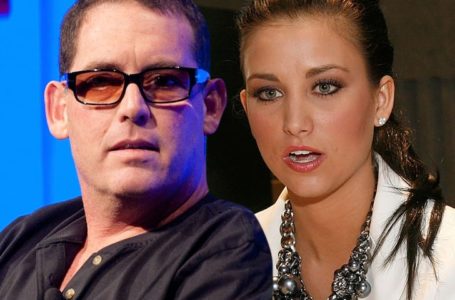In October 2014, Kesha filed a lawsuit against producer Dr. Luke, accusing him of sexual assault and battery, sexual harassment, and emotional distress, among other allegations. For over a year, Luke remained publicly silent about the suit, letting his legal team serve as his mouthpiece, while filing his own countersuit alleging extortion. All silence ceremoniously broke on February 21, when a judge denied Kesha’s request to be released from her contract under Luke’s Sony label Kemosabe. By then, the #FreeKesha fan army had already assembled. It was only after major artists like Lady Gaga and Kelly Clarkson voiced support for Kesha on Twitter—and after Luke’s lawyers claimed a “trial by Twitter”—that Luke felt compelled to use the platform to profess his innocence.
The day after the ruling, Luke wrote in one tweet, among other denials: “I didn’t rape Kesha and I have never had sex with her. Kesha and I were friends for many years and she was like my little sister.” What’s surprising, other than his decision to take the stand via Twitter, is that the tweets have yet to be deleted.
Discussing an ongoing legal case in public violates a traditional, unofficial rule of celebrity litigation (as well as litigation in general): never speak. And, on a basic level, posting on social media about a highly sensitive and ongoing entanglement—legal or not—violates a newer common-sense dictum: never tweet. “No comment” is typically the rule of thumb. But for Luke and other celebs, public opinion can grow so thick that it topples the need to stay tongue-tied.
In Luke’s case specifically, which involves allegations of fairly horrific sexual abuse, it’s tough to care too deeply about whether or not these tweets might hurt his case. What’s interesting, however, is how this question will play out in the future: how social media (Twitter, Facebook, Instagram) has changed the legal game—both for the stars whose posts are guaranteed to draw attention, and their attorneys, who are paid to keep them out of trouble. Is the illusion of risk greater than the reality? How does a legal team control potentially boneheaded famous clients and avoid defamatory social media use?
Not surprisingly, the lawyers I spoke to about Luke’s and other prominent celebrity cases say they advise clients to stay away from social media altogether. “My hard rule would be not to say anything about any disputes that you’re involved in, in any kind of media,” says entertainment and sports lawyer Lisa E. Davis, who represents author Terry McMillan and has served as legal counsel on films like the documentary 9/11 and Malcolm X. “With social media, the rules are no different than they used to be for newspapers. The difference, of course, is that it’s not mediated by any editors, and even though you can quote-unquote delete it, you really can’t get rid of it.”
Even as famous people operate within the same legal system as normal people, the celebrity is clearly extra liable—in several different ways. In some cases, defamatory tweets or posts lead to lawsuits. While we might be able to get away with extremely rude tweets about exes or colleagues, Courtney Love got sued for it twice. In other situations, social posts, quickly amplified and preserved in a thousand screenshots, can damage already pending cases, as with 50 Cent’s bankruptcy case this year. Complications arise when celebs focus more on building relatable personas and keeping the public on their side at all times than on solving or avoiding legal trouble. In essence, they can’t just shut up.
MY HARD RULE WOULD BE NOT TO SAY ANYTHING ABOUT ANY DISPUTES THAT YOU’RE INVOLVED IN, IN ANY KIND OF MEDIA.
In early February, Future was hit with a $15 million defamation suit from Ciara for allegedly slandering her in radio interviews and on Twitter, where he wrote: “This bitch got control problems…” (That tweet was later deleted). And: “I gotta go through lawyers to see baby future……the fuckery for 15k a month,” referring to their son. Future was seemingly trying to preserve his public image as a decent dad, but slandering, in Ciara’s eyes, his ex in the process.
In responding—not to Kesha but to the ego-defeating army of her supporters—Luke similarly seemed to be protecting his reputation as an artist and producer more than he was his chance at a fair trial. Luke wrote in his tweets: “Until now I haven’t commented on the lawsuits, which should be resolved in court not here on Twitter.” And: “It’s a shame that there’s so much speculation out there basing itself on so little information. The only truly objective person who knows the facts is the judge. The judge did not rule in Kesha’s favor on Friday.”
Kesha hadn’t been specific about the facts of the case in public either. After Luke’s tweets, she wrote a more detailed Facebook post stating that she’s not against working with Sony as long as Dr. Luke is cut off.(Bloomberg BusinessWeek explained why breaking the contract is legally implausible for Sony and how the power to sever the deal is ultimately in Luke’s hands.)
Music attorney Kamal Moo, who primarily negotiates recording contracts and publishing deals(he’s previously worked at BMG Music Publishing), considers Luke’s tweets to be fairly harmless. “There’s nothing that jumps out to me that could hurt him,” says Moo, adding, however, “The general theory is better not to tweet. He’s playing the public opinion game. But it hasn’t gone to trial yet and a court may not look favorably upon that. There’s definitely cost-benefit analysis there. Does it help you enough to go down this road and do that?”
EVEN IF A SOCIAL MEDIA POSTING IS NOT PUBLICLY ACCESSIBLE AS MOST TWITTER POSTS ARE, YOUR ONLINE LIFE CAN BE SUBPOENAED.
Whether or not Luke’s tweets turn out to be legally risky, it’s the attempt at public vindication that stumps lawyers like Davis who understand the motivation but don’t see the gain. “So he tweeted that he didn’t rape Kesha. Did he think that’s somehow going to make it seem more believable?” says Davis. “Typically, when you have a situation like this, you have a coordinated approach so that any public statements are vetted by the lawyer and the crisis publicist to make sure it’s telling the story you want to tell. That it’s not contradicting anything that’s going to emerge in court proceedings. That it’s not going to damage your client. The risk with social media is that because there’s no intermediary, there’s no thought or planning.”
In another one of his tweets, Luke posted a screenshot of a 2014 TMZ story with a headline that read: “Lady Gaga denies claim by Kesha’s lawyer that Dr. Luke raped her.” Gaga subsequently posted a photo of herself with Kesha (along with the caption “Free Kesha”), as well as an Instagram note, drilling home the point that she fully stands by Kesha.
Entertainment litigator Bryan J. Freedman—whose clients include Mariah Carey, Chris Nolan and various unnamed celebrity victims of the infamous nude hacks—says of Luke’s tweets, “It might not harm his case, but it might speak about the case. And there may be some level of privacy and right to privacy that the other party has, to not have their name thrown out there over and over again.”
Freedman cites Bill Cosby as a prime example of a situation where the celebrity’s team has likely advised him that speaking or tweeting to clear your name won’t work any magic. Cosby has taken the old-school approach, remaining largely silent himself (he vaguely addressed the rape allegations in a GMA interview where he stated, “I can’t speak”) and never tweeting denials even close to what Luke has. Cosby’s most recent tweet, from December 31, is simply: “Friends and fans, Thank You.” However, his legal strategy is arguably much more questionable (and deplorable), with his team not only accusing his accusers of lying, but suing them in return.
I don’t agree that you accuse the accuser. That’s not a smart way of creating public perception on your side. Cosby’s choice and strategy, albeit from [Cosby’s former lawyer] Marty Singer, has been to attack the women that have attacked him. In my mind, that’s the dumbest thing you could do. Most of the time you’re proving a negative: ‘I didn’t sexually assault her.’ That’s a hard negative to prove.
says Freedman.
The chance of a celebrity’s social activity having legal ramifications is inevitably higher, compared to that of the average user. 50 Cent saw how easily one post can backfire in real life, after he published a photo of stacks of money on Instagram on February 23—a judge ordered him back to bankruptcy court days later (50 initially filed for bankruptcy in July 2015). The judge told 50 Cent’s lawyer James Berman, “I’m concerned about allegations of nondisclosure or a lack of transparency in the case,” alluding to the fact that 50’s social media boasting suggests he’s being dishonest in court about his finances. In fact, 50 has been posting money photos (and videos) on Instagram for months.
The (pretty foolish) perception he’s putting forth is that he’sfooled the courts into thinking he’s bankrupt, but still wants to show the public he’s rich.
Unfortunately for 50, social media posts can have a longer shelf life than traditional media coverage.
The New York Times is read by a number of people and then it’s gone. Twitter, however, people retweet and resend the defamatory information. So there could be a situation where the readership of [a national publication]is much less than the reach of a famous person’s Twitter. When we start to talk about damages, that becomes a big component.
says Freedman.
Ultimately, going on social media about an ongoing legal issue is hardly worth the headache, says attorney Joy Butler, who doesn’t litigate but does specialize in internet law (she’s also the author ofThe Cyber Citizen’s Guide Through the Legal Jungle: Internet Law for Your Professional Online Presence).
“Even if a social media posting is not publicly accessible as most Twitter posts are, your online life can be subpoenaed,” Butler wrote in an email. “Certain laws offer protection, but there are ways around those laws if a court is convinced that the online information is relevant to the case. I advise my clients and readers to treat the Internet as though it has no delete button—because it doesn’t.” She also—offering unexpected context for Dr. Luke’s still-standing tweets—suggests not deleting inflammatory posts, because “such haphazard attempts to protect yourself might ultimately have a negative impact on your case.”
Another celebrity who found herself dealing with legal consequences from Twitter is Courtney Love, who in 2009 went on a rant about fashion designer Dawn Simorangkir. In an unprecedented libel lawsuit, Simorangkir alleged that Love tweeted offensive statements (including one alluding to prostitution) after the pair stopped working together over payment issues. The rant ended up costing Courtney Love thousands of dollars. Freedman won two defamation lawsuits against Love in 2015, while representing Simorangkir.
(Ironically, this was after Love won the first known Twitter libel trial in 2014 and was cleared for tweeting about her ex-attorney Rhonda Holmes, leading to pieces like Poynter’s “How Courtney Love and U.S.’s first Twitter libel trial could impact journalists” and Huffington Post’s “Why Courtney Love’s ‘Twibel’ Lawsuit Is Good for the Internet.”)
ATTORNEY JOY BUTLER SUGGESTS NOT DELETING INFLAMMATORY POSTS. “SUCH HAPHAZARD ATTEMPTS TO PROTECT YOURSELF MIGHT ULTIMATELY HAVE A NEGATIVE IMPACT ON YOUR CASE.”
Love was forced to pay $430,000 and $350,000, respectively, just for tweeting about Simorangkir; Freedman also found her transparency during legal proceedings odd.
Courtney Love was actually in a room during a mediation and she was tweeting out to the world what her lawyer was telling her was going on during the mediation. It was the most unbelievable thing I’d ever seen in my life.
Freedman says
Freedman, for the record, errs on the side of (almost) never tweeting.
I’m very careful about what I tell my clients to tweet and not to tweet. And that if they’re going to put something on Twitter, they make sure that it’s opinion, not fact. So don’t say, ‘She’s a thief who’s been in jail.’ Say, ‘I think people like this seem like the type of people that are not honest.’
Bryan Freedman
In less serious cases, tweetsor other social media proclamations can merely serve as proof of an agreement. Moo references producer Ryan Leslie, who announced a $1 million reward via YouTubefor a stolen backpack/laptop and then refused once the laptop was found. Leslie was later legally ordered to pay up. “I tell people to exercise common sense,” says Moo. “People think Twitter doesn’t matter, but in terms of establishing a contract or responsibilities, you can be held accountable.”
Whether Luke’s tweets are more or less spontaneous than 50 Cent’s Instagram posts, they could be just as harmful. “In any kind of social media posting, your Twitter followers are not the ones who are going to decide your fate. It’s a judge and a jury,” says Davis. “You’re potentially creating evidence that can be brought back to undercut whatever claims you’re trying to make in court. Best case, it has no effect whatsoever. Worst case, it is something that could be used to cross examine you.”
A celebrity doesn’t even have to directly reference their legal case for there to be reasonable doubt about their social media use. Pharma sleaze Martin Shkreli, who’s facing charges of securities fraud, is emboldened enough to regularly live-stream his daily life and mundane activities, potentially giving his opposition hundreds of hours of video evidence in what feels like a perplexing attempt to live up to his slime ball persona. For lawyers, something so seemingly innocuous is still “ill-advised,” notes Davis.
“If people in a potential jury pool say, ‘Oh yeah I’ve seen those videos and that guy’s a jerk,’ they’re gonna get disqualified from serving on the jury so maybe [someone like Shkreli] thinks, well, I’ll poison the entire jury pool. I don’t know,” she says. “It’s just never a good idea. And people that do that typically think they’re the smartest person on their team. Even if they’re really, really smart people, they don’t have the objectivity of the professionals that are working for them.”
Legally and socially speaking, the best recourse is to never tweet.





